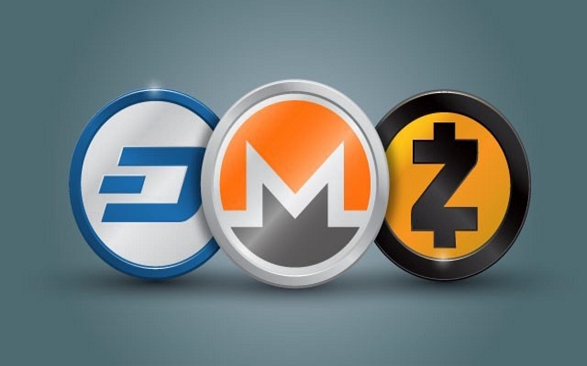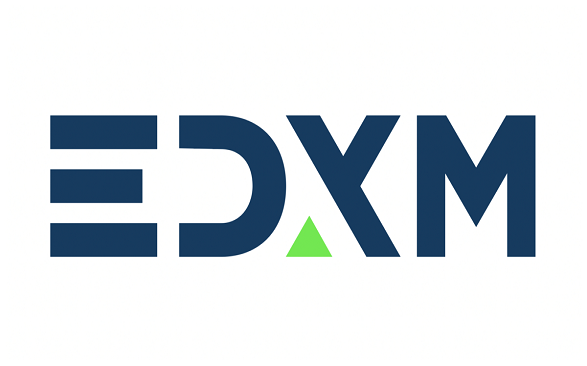Do you know that there is a subset of cryptocurrencies or crypto assets dubbed ‘privacy coins’? Do you also know that there are over 80 most valuable privacy coins in the crypto market today? Well, if you didn’t know, you have been told for free.
As crypto adoption continues to expand with more people and institutions utilizing it for everyday transactions and payments, privacy is becoming increasingly vital. But why is privacy so vital? One major reason is that privacy allows users to protect their financial information and personal identity.
Although conventional cryptocurrencies or crypto assets support decentralization and pseudonymous transactions, they are not anonymous and private. They are only pseudonymous, therefore typically traceable. This is where privacy coins come in. Privacy coins are especially a center of attraction in the decentralized finance (DeFi) industry, leading to their ever-increasing adoption. This exceptional category of cryptocurrencies or cryptoassets is specially designed to offer enhanced privacy by obscuring users.
At the press time, the market capitalization of privacy coins is approximately $6.4 billion with a cumulative 24-hour trading volume of $558,246,424, according to Coinmarketcap data. With growing interest in privacy coins from both the crypto community and some governments, it is important to get everything you should know about privacy coins.
Talking Points
- What are privacy coins and how do they work?
- Pros and cons of privacy coins
- Governments’ battle with privacy coins
- Top 3 privacy coins by market capitalization
What are privacy coins and how do they work?
What exactly are privacy coins, and why are they important in the world of crypto?
In contrast to traditional cryptocurrencies like bitcoin (BTC), Ethereum (ETH), Cardano (ADA), Ethereum Classic (ETC), etc. whose transactions are often transparent and traceable, a privacy coin is a cryptocurrency focused on providing enhanced privacy and anonymity to its users.
The numerous privacy coins in the crypto market today provide anonymity to users by leveraging new technologies that make it difficult to link an individual to a particular transaction(s).
Designed to conceal user identity and hide personal information, on-chain transaction details like quantity, addresses, etc. are usually concealed when interacting with this category of crypto assets.
Particularly, privacy coins use different concepts such as zero-knowledge proofs, public-key encryption, stealth addresses, ring signatures, and mixing services to obscure the identity of their users and other critical transaction details.
Related: What is Blockchain Technology? Meaning, Types, and Use Cases
Mixing Service
The fundamental operational technique of privacy coins is called mixing. The mixing process entails using a platform (mixer) to break the transaction chain between a sender and the receiver. The mixing platform achieves this by shuffling the coins or tokens to be transferred with other coins in its liquidity pools or by using multiple intermediary addresses. Consequently, it is difficult for anyone to track the transaction back to the original parties involved.
Zero-knowledge Proofs (ZK-Proofs)
The term ‘Zero-knowledge proofs’ is an innovation founded in 1985. It proves that one party (the prover) is aware a piece of information is true to another party (the verifier) without disclosing any extra information. In simpler terms, zero-knowledge proofs technology is employed by privacy-centered blockchains to prove to the receiver that the transaction from the sender is valid without making the details of the transaction available to the receiver or any third party.
This is achieved by the use of encryption algorithms. Encryption algorithms accept certain data as input, producing ‘true’ or false’ as output to show the validity of claims made by the prover. The two types of Zero-knowledge proofs being used on the blockchain currently include Zero-knowledge Succinct Non-Interactive Argument of Knowledge (ZK-SNARK) and Zero-knowledge Scalable Transparent Argument of Knowledge (ZK-STARK).
Ring Signatures
The term ‘ring signatures’ is a concept that describes a scenario where a group of users utilizes a shared address, making it difficult to ascertain which group member initiated a particular transaction.
What is a Stealth Address?
Generally, blockchain transactions are decentralized, pseudonymous, traceable, and transparent. This implies that whenever a transaction is executed on a blockchain, the records are made publicly available to be accessible by anyone and everyone. The alphanumeric wallet addresses of both the sender and receiver are shown. Blockchain transactions are pseudonymous in the sense that while everyone can view the transaction details, the real-world identities of the parties involved are shielded.
But privacy-coin blockchain transactions differ because of the introduction of the stealth-address concept. Simply put, a stealth address is a one-time address that hides users’ public keys, ensuring that no one can trace payments back to the parties involved. In a stealth-address transaction, the sender generates a random one-time address that the recipient can use. This makes it difficult for anyone to track the transaction or link it to the sender or recipient.
Pros and Cons of Privacy Coins
One of the major advantages of this category of crypto is that they offer more privacy and security to users. As earlier stated, with traditional cryptocurrencies, anyone can see your transaction history and wallet balance, and potentially track you.
This can be a big problem for people who value privacy or live in countries where there are crypto-unfriendliness, government bans, or even restrictions. Privacy coins, on the other hand, use various techniques to mask their users’ identities and transaction details, providing a new level of privacy and security.
Privacy coins are also censorship-resistant. When some governments or regulatory agencies attempt to ban cryptocurrency, privacy coins make it more difficult for them to do because transactions are private and untraceable.
As you know, there are always two sides to a coin. So, what are some of the disadvantages of using privacy coins? On the top of the list is that they can be used to facilitate illegal activities such as money laundering. While any form of currency (including fiats) could be used for illegal purposes, the anonymity offered to users by privacy coins makes them more attractive to hackers and cybercriminals.
Governments Battle With Privacy Coins
This issue of facilitating fraudulent activities is one of the major challenges and prolonged issues governments have with privacy coins. This has led some governments to view this set of digital currencies as a threat. Hence, there is a likelihood that regulators may ban or heavily regulate privacy coins. It was this concern that triggered the August 2022 sanctioning of the popular crypto-mixing platform Tornado Cash by the United States Treasury Department. The reason cited was that Tornado Cash enhances illicit money cleaning. On the other side of the coin, platforms like Tornado Cash have also been used to make international donations in order to protect their identities. A recent example is the Russia-Ukrane war where individuals relied on Tornado cash or privacy coins to make donations to Ukranians for fear of being traced by the Russian government.
Secondly, the potential for privacy coins to undermine traditional monetary policies and support tax evasion are among the concerns some governments have about these untraceable cryptocurrencies.
On the whole, the use of privacy coins has raised a variety of controversies and regulatory challenges. While these coins offer more privacy and security to their users, they also have negative impacts that governments have to contend with.
Top 3 Privacy Coins by Market Capitalization
- Monero (XMR)
Launched in April 2014, Monero is a proof-of-work (PoW) blockchain that is focused on private and censorship-resistant transactions. Monero makes use of stealth addresses, ring signatures, and RingCT to offer users anonymity functions. Its native currency, represented by the ticker ‘XMR’, is the biggest privacy coin by market cap as it is the most widely adopted privacy coin.
According to Coingecko, XMR, which is the 27th-largest crypto by market cap at the time of writing, attained its all-time high (ATH) of $542.33 in January 2018. XMR’s all-time low of $0.22 was recorded in January 2015.
- Zcash (ZEC)
ZEC, the native token of the Zcash blockchain, is the second-largest privacy coin in the market, at the time of writing. The PoW-based blockchain, founded in October 2016, was the first project to implement zk-SNARK. Using this zk-SNARK technology, ZEC gives its users arguably the strongest privacy available in any digital currency.
Designed to have a maximum supply of 21,000,000 ZEC, only 63.43% of this supply (13,319,688.14) has been issued at the time of writing. ZEC is changing hands at $46.22 at the time of writing.
- Dash ($DASH)
Dash was founded in 2014 by software developers Evan Duffield and Kyle Hagan. Dash was first named XCoin and then changed to Darkcoin. In March 2015, it was rebranded to Dash. It is a fork of Litecoin (LTC).
The Dash network uses a technique called “PrivateSend” to mix transactions. This makes it difficult to attribute a specific transaction to a specific user. Dash also features a two-tier network with ‘masternodes’. It helps to secure the network and enables advanced features like instant transactions and governance.
DASH (in all CAPs) is the native token of Dash, the privacy-enhancing blockchain. DASH is the third-largest privacy coin by market cap and it is focused on giving users secured, fast, and cheap transactions. DASH has a maximum supply of 18,900,000. According to Coinmarketcap data, DASH hit an all-time high of $1,115.48 per coin on 1 October 2018. The maximum supply of DASH is 18,920,000.
Read Also: Metaverse and Top Metaverse Coins in the Crypto Market
Conclusion
Privacy coins are an intriguing development in the crypto world as they offer users enhanced privacy and anonymity. While they present unique use cases, it is important to remember that they also have their challenges and weaknesses.
So when considering a privacy coin, it’s important to do your research. This includes not only understanding the technicalities of the privacy coin itself but also staying abreast with the latest regulatory issues related to it. The legal status, as well as risks of privacy coins, varies depending on the country where you want to use them.
Considering the increasing demand for privacy in today’s world, including Web2 and Web3 platforms, the adoption of privacy coins is expected to continue to grow. But understandably, privacy-coin adoption will face regulatory challenges across the world. This is why privacy coins will likely see more developments in this area.
Credit: Ndianabasi Tom
A crypto journalist and content writer who has been talking about cryptocurrency and blockchain technology since 2018, Ndianabasi is a Writer at Crypto Asset Buyer (CAB).
Discover more from Crypto Asset Buyer
Subscribe to get the latest posts sent to your email.





